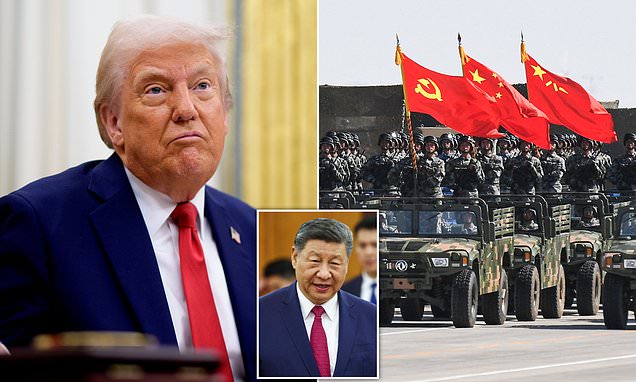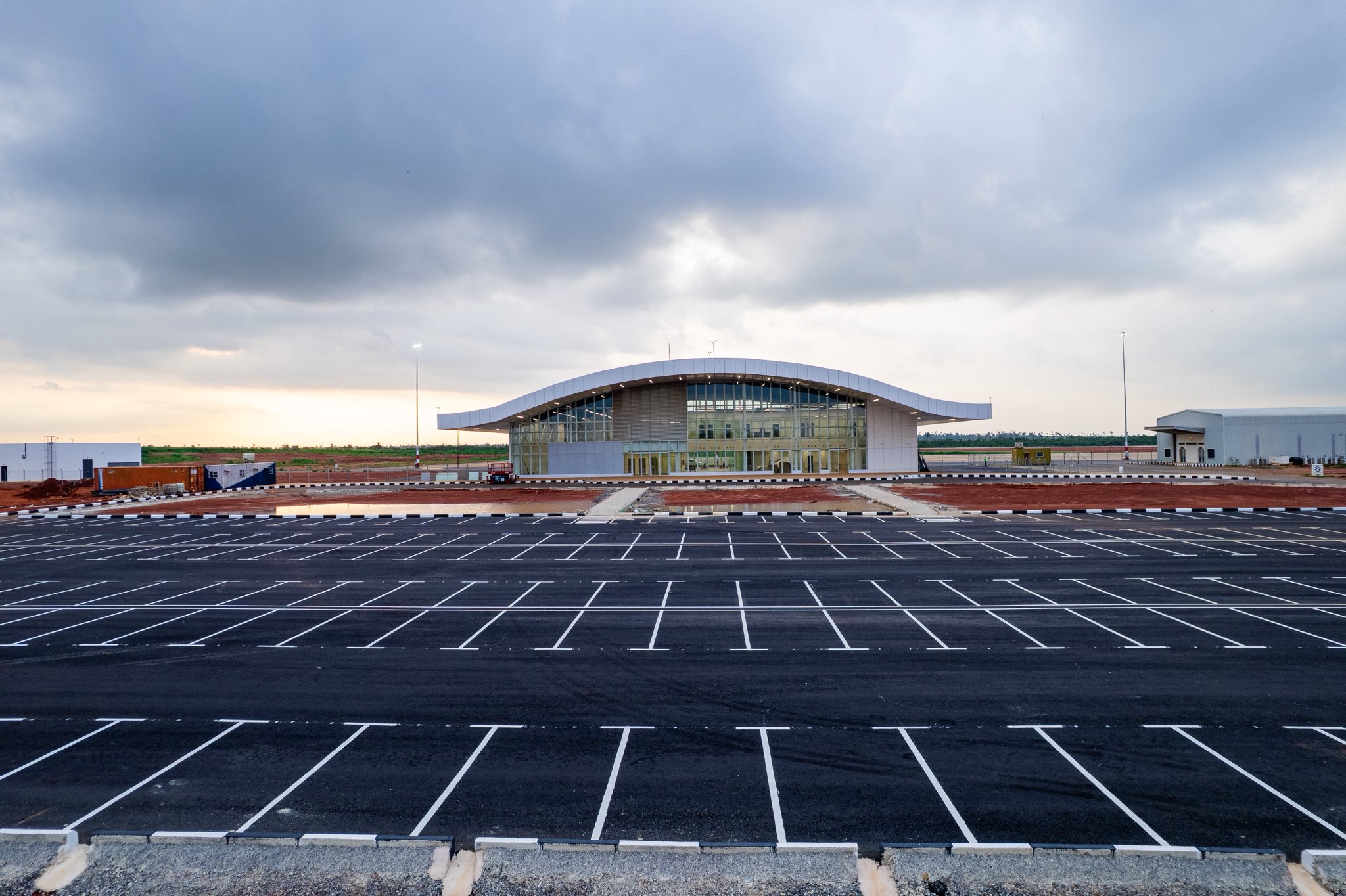In a significant diplomatic development, the United Arab Emirates (UAE) has issued a stern warning to Israel, describing any potential annexation of the occupied West Bank as a “red line” that would severely undermine the Abraham Accords and halt efforts toward regional integration. This statement, delivered by Lana Nusseibeh, Assistant Minister for Political Affairs at the UAE’s foreign ministry, comes at a critical juncture, just days before the fifth anniversary of the historic normalization agreement signed in 2020. The UAE’s warning marks its strongest rebuke of Israel since the Gaza war began in 2023, raising questions about the durability of the Abraham Accords and the broader trajectory of Middle Eastern geopolitics. This article provides an in-depth exploration of the UAE’s position, the context of Israel’s annexation plans, the implications for the Abraham Accords, and the broader regional and global consequences of this escalating tension.
The UAE’s Warning: A Diplomatic Red Line
On September 3, 2025, the UAE issued a clear and unequivocal statement regarding Israel’s reported plans to annex parts of the occupied West Bank. Lana Nusseibeh, a senior Emirati diplomat and former UAE ambassador to the United Nations, articulated Abu Dhabi’s position in a series of interviews and statements, emphasizing that annexation would constitute a “red line” for the UAE. “Annexation in the West Bank would severely undermine the vision and spirit of the Abraham Accords, end the pursuit of regional integration, and alter the widely-shared consensus on what the trajectory of this conflict should be – two states living side by side in peace, prosperity, and security,” Nusseibeh declared.
This warning was echoed by Anwar Gargash, another senior Emirati diplomat, who took to the social platform X to reiterate that “annexation is a red line.” The UAE’s statements were carefully crafted, directed not only at the Israeli government but also at the Israeli public, urging them to consider the long-term consequences of such a move. Nusseibeh’s remarks in an interview with The Times of Israel were particularly notable, as she appealed directly to Israelis, warning that annexation would effectively amount to a rejection of the Abraham Accords and risk irreparably damaging ties with regional partners.
The UAE’s position is rooted in its long-standing commitment to supporting Palestinian statehood, a condition that was central to its decision to normalize relations with Israel in 2020. At the time, the UAE framed the Abraham Accords as a means to advance the cause of a two-state solution, securing Israel’s agreement to suspend annexation plans as a prerequisite for normalization. Nusseibeh reiterated this stance, stating, “From the very beginning, we viewed the Accords as a way to enable our continued support for the Palestinian people and their legitimate aspiration for an independent state. That was our position in 2020, and it remains our position today.”
The timing of the UAE’s warning is significant, coming just ahead of the fifth anniversary of the Abraham Accords on September 15, 2025, and in the context of escalating tensions in the region. The statement reflects growing unease in Abu Dhabi about Israel’s actions, particularly in light of recent proposals by far-right Israeli ministers to annex large swathes of the West Bank. The UAE’s sharp criticism underscores the fragility of the normalization agreement, which was hailed as a landmark achievement in Middle Eastern diplomacy but now faces its most serious test since its inception.
The Abraham Accords: A Fragile Framework for Peace
The Abraham Accords, signed in September 2020 under the mediation of then-U.S. President Donald Trump, marked a historic shift in Middle Eastern geopolitics. The agreements facilitated the normalization of diplomatic relations between Israel and four Arab nations: the UAE, Bahrain, Morocco, and Sudan. The UAE, as the first Arab country in 26 years to establish formal ties with Israel, was the driving force behind the accords, leveraging its economic and diplomatic clout to reshape regional dynamics.
The accords were celebrated as a breakthrough, opening avenues for trade, tourism, defense cooperation, and cultural exchanges between Israel and its new Arab partners. For the UAE, normalization with Israel was seen as a strategic move to enhance its regional influence, attract investment, and position itself as a leader in fostering peace and stability. Since 2020, Abu Dhabi has deepened its ties with Israel, with bilateral trade reaching billions of dollars and joint initiatives in technology, agriculture, and security flourishing. The UAE has also used its relationship with Israel to coordinate humanitarian aid drops into Gaza, viewing the accords as a platform to support Palestinians while advancing regional integration.
However, the accords were not without controversy. Critics, particularly in the Arab world, argued that normalization undermined the Palestinian cause by bypassing the traditional Arab consensus that ties with Israel should be contingent on progress toward a Palestinian state. The UAE countered this criticism by emphasizing that the accords halted Israel’s annexation plans in 2020, framing the agreement as a victory for Palestinian aspirations. The current crisis, however, threatens to unravel this delicate balance, as Israel’s renewed annexation proposals challenge the UAE’s vision of a two-state solution and regional cooperation.
Israel’s Annexation Plans: A Provocative Move
The UAE’s warning comes in response to reports that Israeli Prime Minister Benjamin Netanyahu is considering annexing parts of the occupied West Bank, a territory Israel captured from Jordan in the 1967 Six-Day War. The West Bank, along with East Jerusalem and Gaza, is claimed by Palestinians as part of their future state, a position supported by most of the international community. Since 1967, Israel has built approximately 160 settlements in the West Bank, housing over 700,000 Jewish settlers, a move widely regarded as illegal under international law.
In August 2025, far-right Israeli Finance Minister Bezalel Smotrich, a vocal advocate for annexation, announced plans to advance a major settlement project known as E1, which would effectively divide the West Bank and isolate East Jerusalem from Palestinian population centers. Smotrich, leader of the Religious Zionism Party, escalated his rhetoric on September 3, 2025, unveiling a proposal to annex 82% of the West Bank, leaving six Palestinian cities with limited autonomy. He described the plan as a “preventative step” to counter growing international recognition of Palestinian statehood, stating that it would “bury the idea of a Palestinian state.”
Smotrich’s proposal has been supported by other far-right figures in Netanyahu’s coalition, including National Security Minister Itamar Ben Gvir, who advocates for a maximalist approach to annexation. Israeli officials have indicated that Netanyahu is exploring various options, ranging from annexing select settlements to a broader takeover of Area C, which constitutes about 60% of the West Bank under the Oslo Accords. One specific plan under consideration is the annexation of the Jordan Valley, a strategic strip along the Jordan River viewed by many in Israel as a critical security buffer.
These proposals have sparked alarm among Palestinians and their allies. The Palestinian Authority (PA), which exercises limited self-rule in parts of the West Bank, condemned Smotrich’s plan as a “direct threat” to the prospects of a Palestinian state. Yehuda Shaul, an Israeli activist with the Ofek Centre, a think tank opposing Israel’s occupation, likened Smotrich’s annexation map to apartheid-era South Africa, warning of its devastating implications for Palestinian self-determination.
The international community has also voiced strong opposition. In July 2024, the International Court of Justice (ICJ) issued an advisory opinion declaring Israel’s occupation of Palestinian territories unlawful and calling for the evacuation of all settlements. Countries such as France, the United Kingdom, Canada, Australia, and Portugal have announced plans to recognize Palestinian statehood at the United Nations General Assembly in September 2025, joining the 147 UN member states that already recognize Palestine. Netanyahu has dismissed these moves as a “reward for terrorism,” citing Hamas’s attack on Israel on October 7, 2023, which triggered the ongoing Gaza war.
The Gaza War and Regional Tensions
The UAE’s warning must be understood in the context of the broader regional instability fueled by the Gaza war, which began in October 2023 following a Hamas-led attack on southern Israel. The conflict has resulted in catastrophic loss of life, with Gaza’s Health Ministry reporting over 63,746 deaths, predominantly civilians, and widespread destruction of infrastructure. The war has also exacerbated humanitarian crises, with famine declared in parts of Gaza and malnutrition-related deaths soaring to 367, including 131 children, as of September 2025.
Israel’s military operations in Gaza, including a major offensive in Gaza City launched in September 2025, have drawn global condemnation. Israeli strikes have killed thousands, and restrictions on food and aid have deepened the humanitarian disaster. The war has also strained Israel’s relations with its Arab partners, particularly the UAE, which has maintained diplomatic ties but faced domestic and regional pressure to respond to Israel’s actions. The UAE’s coordination of aid drops into Gaza reflects its attempt to balance its commitment to the Abraham Accords with its support for Palestinians.
The prospect of West Bank annexation further complicates the regional landscape. For the UAE, annexation represents a direct challenge to the principles of the Abraham Accords, which were predicated on mutual respect and a commitment to peace. The move would also jeopardize efforts to expand the accords to include Saudi Arabia, a key U.S. foreign policy goal under President Donald Trump’s second term. Saudi Arabia has conditioned normalization with Israel on progress toward a Palestinian state, a stance reinforced during a meeting between UAE President Sheikh Mohammed bin Zayed Al Nahyan and Saudi Crown Prince Mohammed bin Salman in Riyadh on September 3, 2025.
Implications for the Abraham Accords
The UAE’s warning raises serious questions about the future of the Abraham Accords. While the agreements have delivered tangible benefits, including economic and security cooperation, their sustainability depends on a shared commitment to regional stability and a two-state solution. Annexation would undermine this foundation, potentially prompting the UAE to reconsider its ties with Israel. Although Abu Dhabi has not explicitly threatened to withdraw from the accords, the repeated emphasis on annexation as a “red line” suggests that significant diplomatic consequences could follow.
The UAE’s position reflects a broader concern among Arab states that Israel’s actions could destabilize the region and fuel extremism. Nusseibeh’s call for the Israeli government to “suspend these plans” and reject the influence of “extremists” was directed at far-right figures like Smotrich and Ben Gvir, whose maximalist approach to annexation threatens to alienate Israel’s regional partners. The UAE’s fellow Gulf Arab states have also condemned Israel’s annexation proposals, signaling a unified front against the move.
For Israel, the stakes are high. The Abraham Accords have provided a rare opportunity to break its regional isolation, fostering alliances with Arab states that share common interests in countering Iran and promoting economic growth. Annexation could jeopardize these gains, alienating not only the UAE but also other signatories like Bahrain and Morocco. It could also complicate Israel’s relationship with the United States, particularly under a Trump administration that has prioritized expanding the accords. Nusseibeh’s appeal to Trump’s legacy as the architect of the accords underscores the UAE’s hope that U.S. pressure could deter Israel from moving forward with annexation.
The Palestinian Perspective
The Palestinian Authority has welcomed the UAE’s stance, viewing it as a critical counterweight to Israel’s annexation plans. The PA’s foreign ministry issued a statement praising Abu Dhabi’s commitment to a two-state solution and urging other Arab states to follow suit. For Palestinians, annexation represents an existential threat to their aspirations for statehood, as it would fragment the West Bank and render a contiguous state unviable. Smotrich’s proposal, which would encircle Palestinian population centers and leave them with limited autonomy, has been condemned as a step toward apartheid by Palestinian leaders and international observers.
The broader Palestinian population, already reeling from the Gaza war and ongoing settlement expansion, faces increasing despair. The ICJ’s 2024 ruling and the growing number of countries recognizing Palestinian statehood have provided some diplomatic momentum, but without concrete action to halt Israel’s policies, these gestures risk being symbolic. The UAE’s warning, while significant, highlights the challenges of translating diplomatic rhetoric into tangible outcomes for Palestinians.
Global Reactions and the Role of the United States
The international community has responded with near-universal condemnation of Israel’s annexation plans. The United Nations, European Union, and countries across the Global South have reiterated that settlements and annexation are illegal under international law. The ICJ’s advisory opinion, while non-binding, has added legal weight to these arguments, calling for Israel to end its occupation “as rapidly as possible.”
The United States, as the primary mediator of the Abraham Accords, faces a delicate balancing act. President Trump, who returned to office in January 2025, has made expanding the accords a cornerstone of his foreign policy, with a particular focus on securing Saudi Arabia’s participation. However, Israel’s actions in the West Bank and Gaza have complicated these efforts, drawing criticism from Arab states and European allies. The UAE’s appeal to Trump’s legacy suggests that Abu Dhabi is counting on U.S. influence to rein in Israel’s far-right ministers.
The Biden administration, during its tenure, faced similar challenges in navigating U.S.-Israel relations amid growing global criticism of Israel’s policies. The transition to Trump’s second term has shifted the dynamics, with a stronger emphasis on regional alliances and less public criticism of Israel. However, the UAE’s warning indicates that even Trump’s allies in the Gulf are prepared to draw a line if Israel pursues annexation.
The Path Forward: Challenges and Opportunities
The UAE’s warning underscores the precarious state of Middle Eastern diplomacy as the region grapples with the fallout of the Gaza war and the prospect of West Bank annexation. For the Abraham Accords to survive, both Israel and its Arab partners must navigate a complex web of political, humanitarian, and strategic challenges. The UAE’s call for Israel to suspend its annexation plans reflects a broader plea for moderation and dialogue, but the polarized nature of Israeli politics, with far-right ministers wielding significant influence, complicates the path to de-escalation.
For Palestinians, the UAE’s stance offers a glimmer of hope, but concrete action is needed to translate diplomatic support into meaningful change. The growing international recognition of Palestinian statehood, coupled with legal rulings like the ICJ’s, could provide leverage, but without enforcement mechanisms, these efforts may fall short. The Palestinian Authority must also contend with internal challenges, including limited governance capacity and public disillusionment, to effectively advocate for its people.
The role of the international community, particularly the United States, will be critical in shaping the outcome. A coordinated approach that combines diplomatic pressure, humanitarian aid, and incentives for peace could help avert a crisis. The UAE’s willingness to engage directly with the Israeli public, as seen in Nusseibeh’s interview with The Times of Israel, suggests a strategy of building grassroots support for coexistence, even as government policies diverge.
Conclusion
The UAE’s warning that Israel’s annexation of the West Bank would cross a “red line” represents a pivotal moment in the trajectory of the Abraham Accords and Middle Eastern diplomacy. By drawing a clear line, Abu Dhabi has signaled its commitment to the principles of peace, coexistence, and a two-state solution, even as it navigates the complexities of its relationship with Israel. The prospect of annexation threatens to unravel the progress made since 2020, jeopardizing regional integration and alienating key Arab partners.
As Israel weighs its next steps, the international community, led by the United States, faces a critical opportunity to steer the region toward dialogue and de-escalation. The UAE’s stance, backed by its Gulf allies and supported by the Palestinian Authority, underscores the urgency of preserving the vision of a Middle East where Israel and its neighbors can coexist in peace and prosperity. Whether this vision can withstand the pressures of annexation, conflict, and political extremism remains to be seen, but the UAE’s warning serves as a clarion call for action to safeguard a fragile but hopeful framework for regional cooperation.









